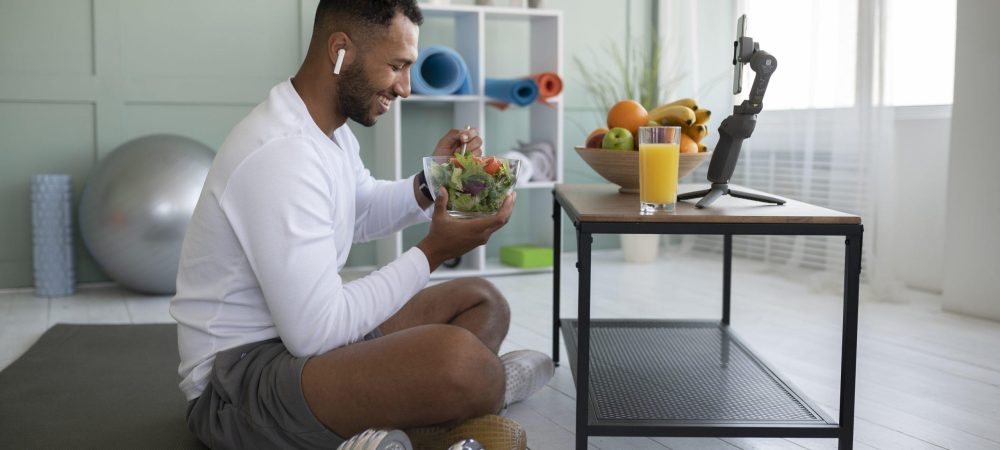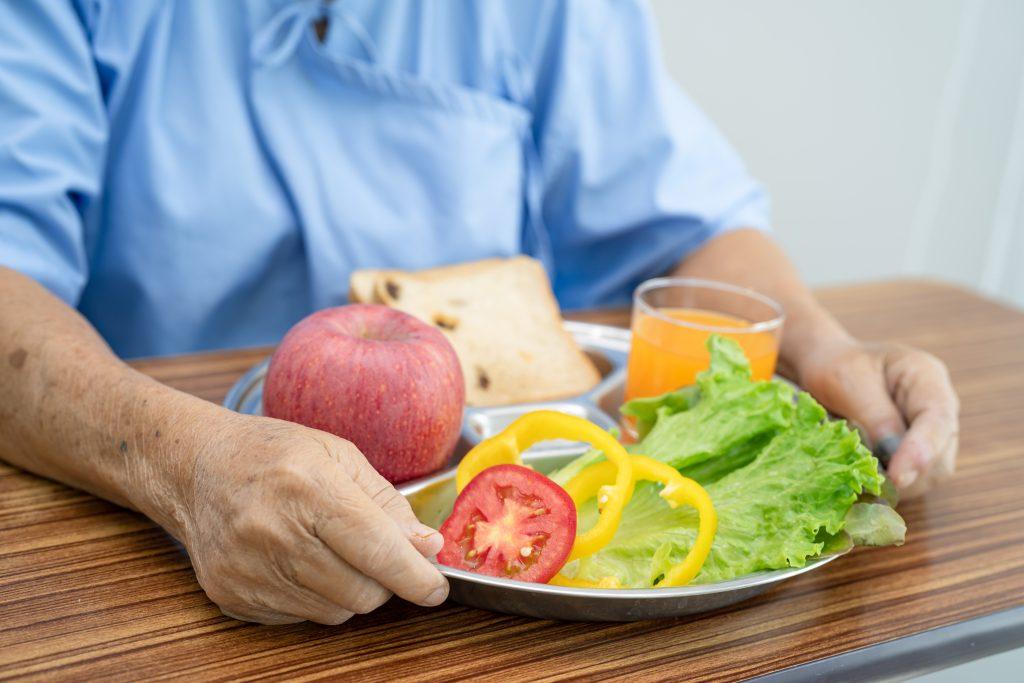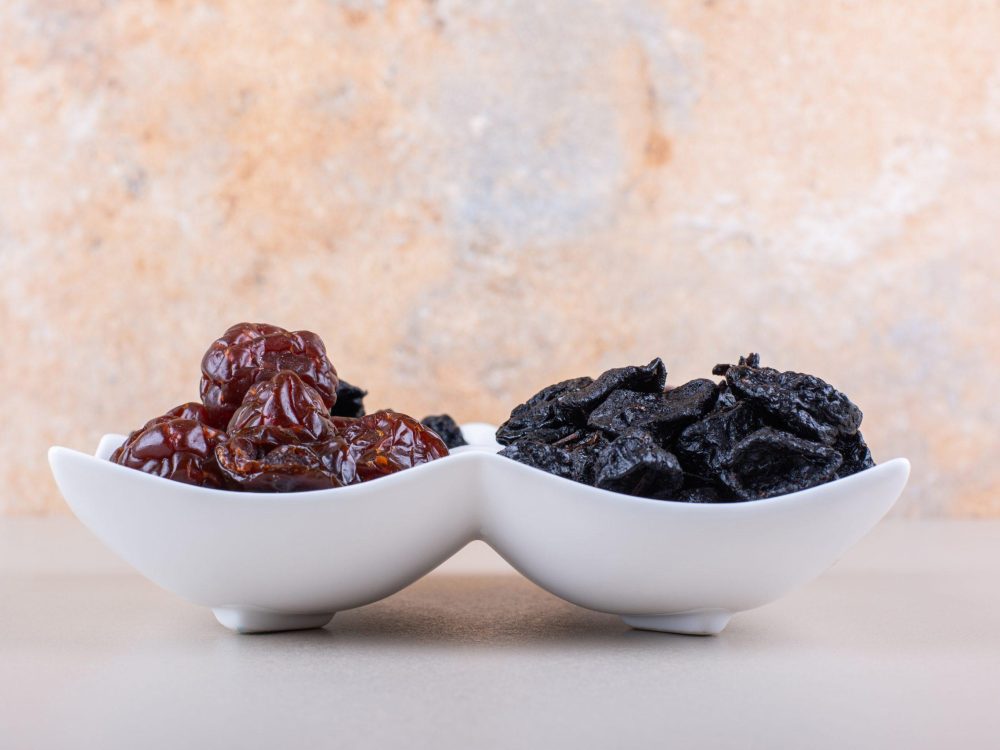
Constipation is a common gastrointestinal problem suffered by many people nowadays. Given the lifestyle, poor diet, lack of exercise, and stress, this problem is faced by people of all ages, from elders to youth to the middle-aged population.
Constipation may not be a pleasant topic to discuss, but it is the most troublesome and painful for the person who is experiencing it. According to the latest survey, around 22 percent of the Indian adult population suffers from constipation. So, if you are suffering from tummy trouble, you’re not alone.
The good news is that simple lifestyle changes and dietary modifications can help your digestive system run smoothly again. Continue reading to learn what you can do to ease your constipation symptoms and promote regular bowel movements.
If you’re dealing with long-term constipation, making changes to your diet can be a game-changer. Here are some simple and effective tips:

Fiber is like the superhero for your digestive system. It’s the part of the food that your body cannot break down. Consuming high-fiber foods will add bulk to your stool, making it easier to pass. To make things comfortable, introduce fibre into your diet gradually to give your stomach time to adjust.
Depending on your age and sex, aim to get 22 to 34 grams of fibre daily. But if more fibre makes you feel worse, don’t force it.
Good sources of fibre are whole grains like oats and brown rice, fruits like apples and berries, and vegetables like broccoli and carrots.

Water is a key player in the digestion game. It acts as a valuable ally to fibre in supporting your digestive system. Collaboratively, they work to soften stools, making them more manageable.
Hydration is not only good for digestive health but for your overall well-being. Adequate fluid intake plays a pivotal role in preventing dehydration, a common cause of constipation.
Throughout the day, drink plenty of water. If you find plain water boring, you can also hydrate with herbal teas, fruit-infused water, naturally sweetened fruit and vegetable juices, as well as clear soups.
Fermented foods contain probiotics that promote a healthy balance of bacteria in your digestive system. Sources include kefir, tempeh, yoghurt, kombucha, and kimchi. Including these in your diet allows you to benefit from their controlled microbial growth process.
If these foods aren’t your favourites, there are also probiotic supplements available, which you can take after a doctor’s recommendation.
Processed foods, such as white bread, chips, and packaged baked goods, contain high amounts of sugar and lack the fibre and nutrients your gut needs. These foods can disturb the balance of healthy gut bacteria.
Whether in seed form, flour, or oil, flaxseed has proven to alleviate constipation symptoms by increasing bowel movements. Add flaxseed to your diet by incorporating it into soups, cereal, or smoothies.

Consuming prunes or dried plums is effective in relieving constipation. They are high in fibre and contain sorbitol, which acts as a natural laxative. A study published in Critical Reviews in Food Science and Nutrition highlights that dried plums and their derivatives, including prune juice, not only help alleviate constipation but also prevent colon cancer.
According to the Mayo Clinic, incorporating approximately 2 to 4 ounces of prunes daily for children and 4 to 8 ounces of prune juice daily for adults can significantly impact the frequency and consistency of bowel movements.
Making lifestyle changes can go a long way in helping you find relief from constipation.
Being active isn’t just about staying fit; it can also help keep things moving smoothly in your digestive system, preventing constipation. Here are some easy tips to incorporate exercise into your routine:
Make exercise a habit. Consistency matters, so find a routine that fits into your daily life, making it easier to maintain.
When you feel the urge for a bowel movement, don’t delay – head to the restroom promptly. Holding it in only adds to the problem of constipation. Responding promptly to your body’s signals helps maintain healthy bowel habits and prevents discomfort.
Set a consistent time for bowel movements. This helps regulate your body’s internal clock, making the process smoother.
Believe it or not, stress affects your digestion. When stressed, the body’s “fight or flight” response may slow down bowel movements. Relaxation practices such as deep breathing, meditation, or yoga can help you reduce stress. These practices can calm your mind and support healthy digestion.
Incorporate breaks into your day, and prioritize self-care. Ensure that stress management becomes a consistent part of your day.


Regular exercise, consistent toilet habits, stress management, and personalized strategies are vital for digestive health. Remember, managing constipation isn’t just about one thing. A holistic approach that combines various lifestyle factors is most effective.
When dietary and lifestyle modifications don’t work and you experience persistent constipation, especially if it seems severe or is accompanied by weight loss, fever, weakness, or other health concerns, it’s advisable to consult a doctor. Even if you generally manage constipation well, these signs may indicate underlying health issues that need attention.
If you live in Hyderabad and need help easing constipation, consult Dr K V Dinesh Reddy, a Surgical Gastroenterologist. Book an appointment today!

It is always advisable to consult with an experienced doctor for personalized advice and an accurate diagnosis. Dr. K V Dinesh Reddy is known for his expertise in Chronic Constipation treatment in Hyderabad. With a proven track record of performing multiple liver cancer surgeries, he specializes in liver disease management and gastrointestinal oncological surgeries.
You can trust our expertise and dedication to providing exceptional care for your colorectal cancer treatment.
Smoking is bad for your digestion and can make you constipate. When you smoke, you have less spit that helps digest food, making it tough for your stomach to break it down. Smoking also weakens the muscles in your belly, slowing down how food moves. This slow process can lead to constipation, making it hard to go to the bathroom regularly. Smoking even raises the chances of stomach problems like ulcers and acid reflux, which hurt your digestion. Quitting smoking is a good move to help your digestion and stop constipation.
Sure, probiotics, the good bacteria, can help with chronic constipation. They work by keeping your gut healthy, helping with digestion, and making your poop softer and easier to pass. When your gut is balanced, probiotics can make you go to the bathroom more regularly and ease constipation. You can find probiotics in foods like yogurt and kefir, or you can take supplements. But, before trying anything new, it’s always smart to talk to a doctor.
Sure, if you often get constipated, it’s smart to avoid certain foods. Skip fried and fatty processed foods, and go easy on dairy if it upsets your stomach. Choose lean proteins like chicken or fish over red meat. Be cautious with sugary treats, drinks, and white bread. Opt for foods with lots of fiber, such as fruits, veggies, and whole grains. Keep yourself hydrated with plenty of water, and try to stay active. These simple adjustments can make it easier for you to go to the bathroom regularly and relieve chronic constipation.
Moving your body regularly helps with chronic constipation. When you exercise, your muscles, including those in your stomach, move too. This makes food and waste go through your belly more easily. Exercise also makes your belly muscles squeeze, preventing poop from getting too hard. Plus, it helps you stay a good weight, which lowers the chance of constipation. So, keep moving to keep things moving in your belly!
Eating more fiber can really help with ongoing constipation. Fiber makes your poop bigger and softer, so it’s easier to go. You can get fiber from fruits, veggies, whole grains, and beans. Try to get about 25 to 30 grams of fiber every day. Also, drink lots of water with your fiber to keep things flowing well. Add fiber to your diet slowly to avoid feeling too full. And don’t forget, moving around a bit every day is good for your digestion. If you still have trouble, talk to your doctor for advice just for you.

Our goal is to deliver quality of care in a courteous, respectful, and compassionate manner. We hope you will allow us to care for you and strive to be the first and best choice for your family healthcare.
© 2023 Dr.DineshReddy | Designed by Ramit Solutions